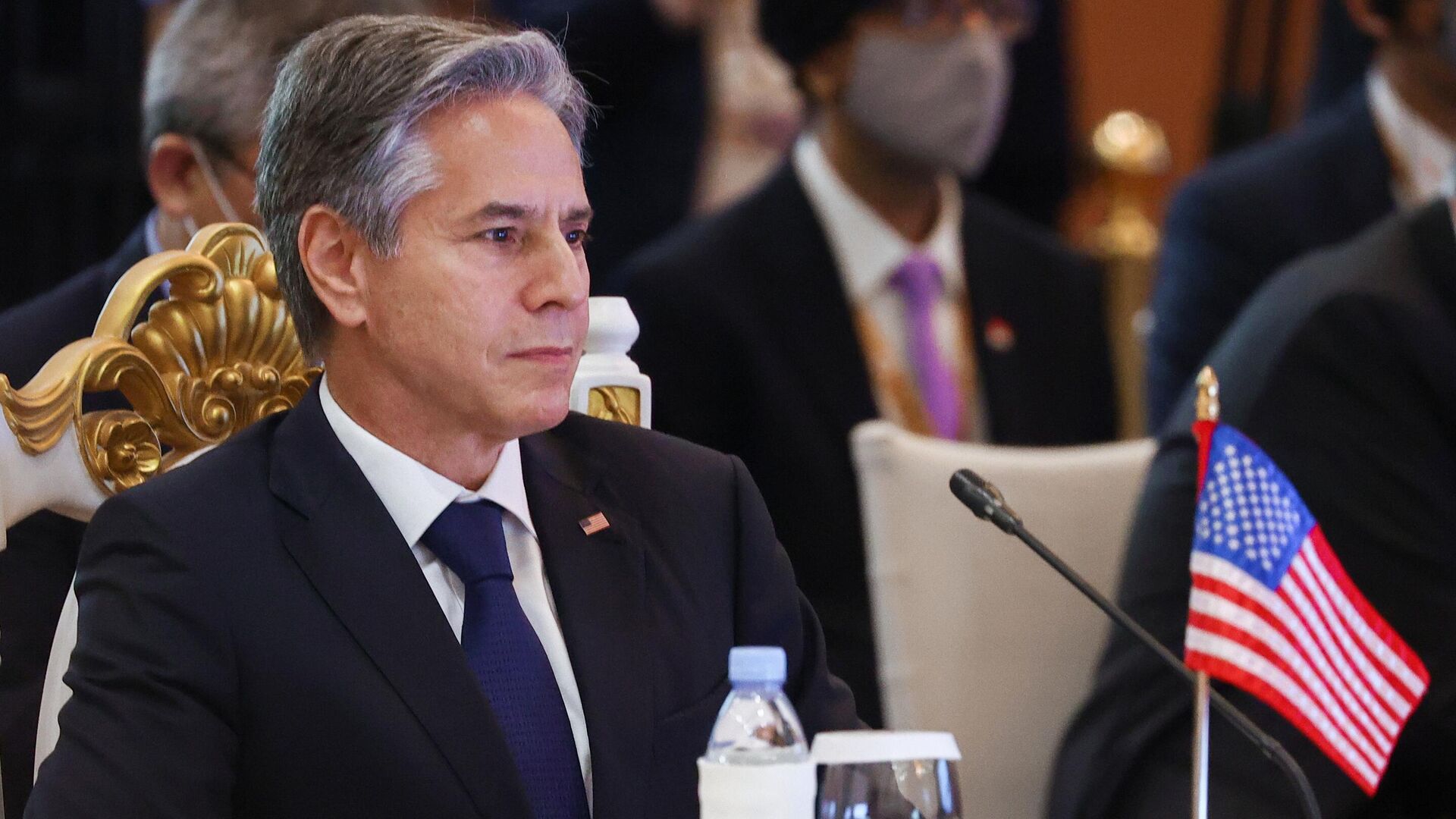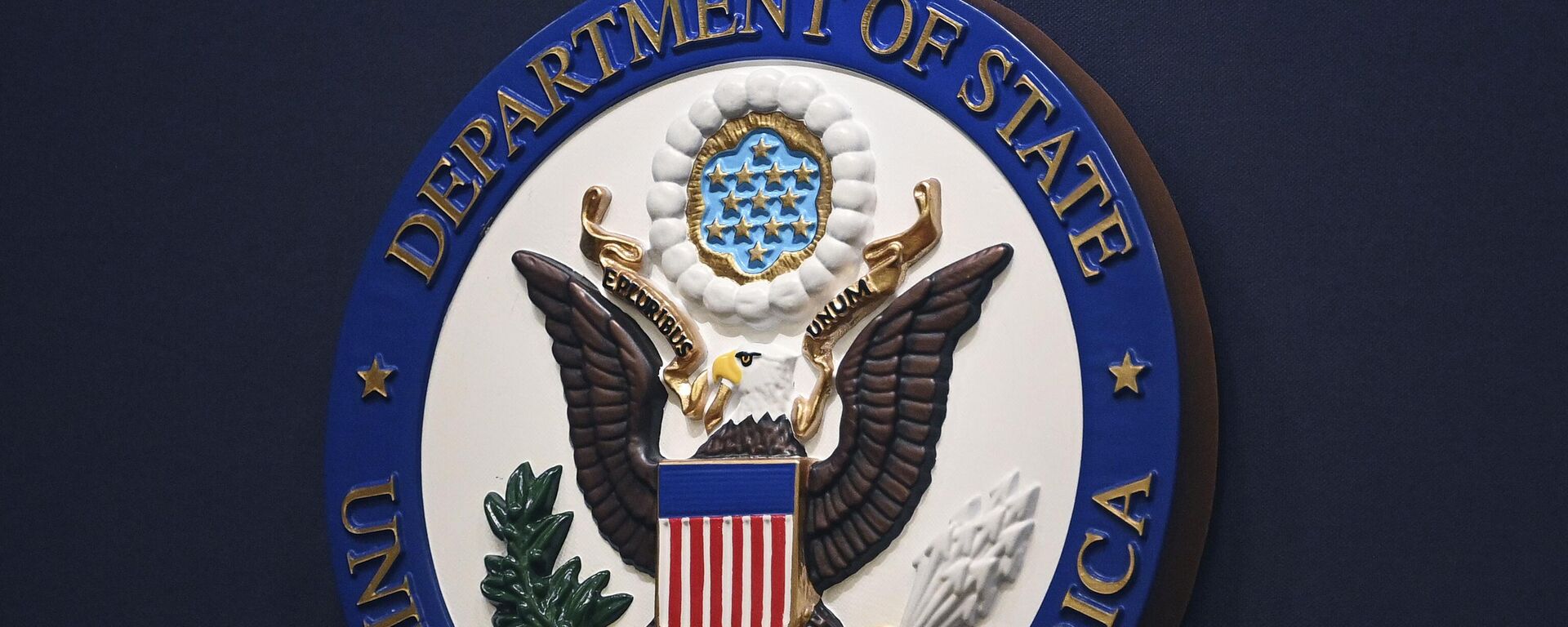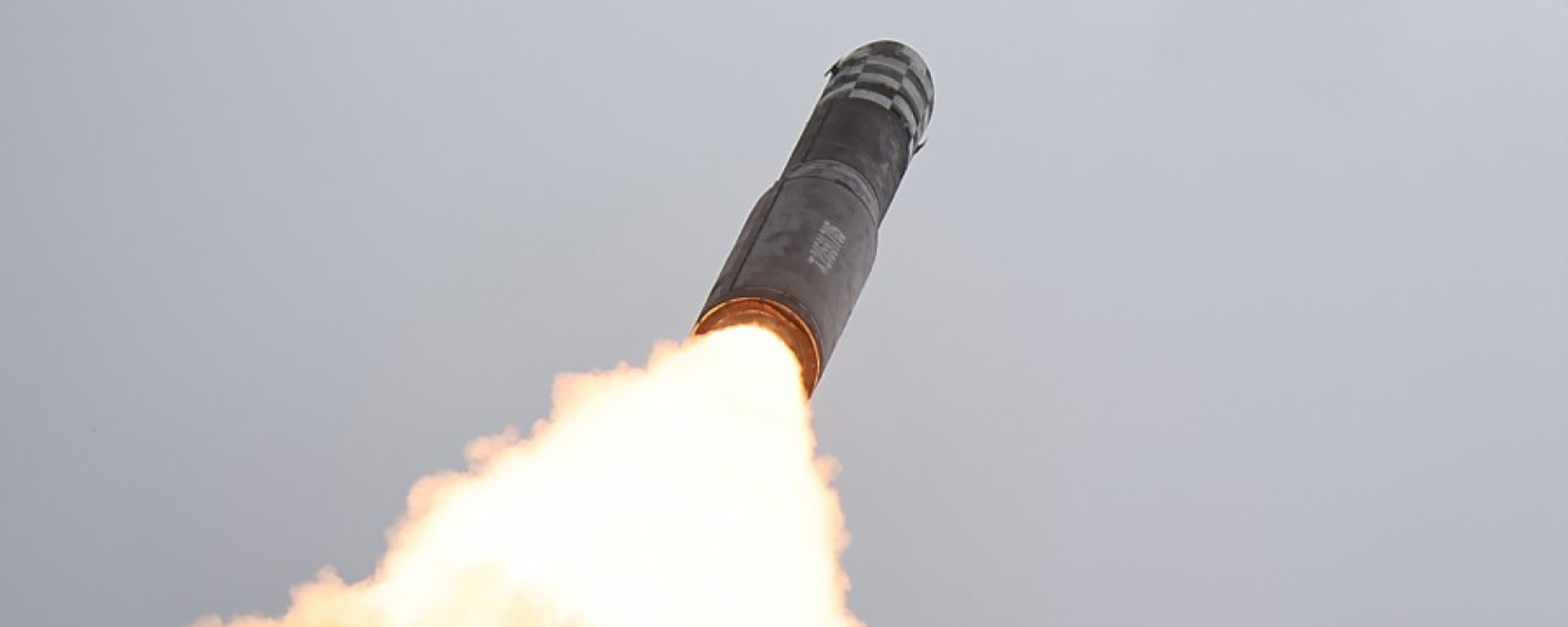https://sputnikglobe.com/20240626/us-accuses-china-of-saber-rattling-but-america-is-main-trouble-maker-in-region-1119128493.html
US Accuses China of Saber-Rattling, But America is Main Troublemaker in Region
US Accuses China of Saber-Rattling, But America is Main Troublemaker in Region
Sputnik International
The US has spent years hyping an alleged “Chinese threat” while building up its presence in the Asia-Pacific, encircling the PRC with military bases and green lighting billions in lethal aid to Taiwan, a bright red line for Beijing. Such conduct puts Washington's status as a mediator of global disputes in doubt.
2024-06-26T00:03+0000
2024-06-26T00:03+0000
2024-06-26T05:01+0000
world
antony blinken
jens stoltenberg
jimmy carter
north korea
china
pyongyang
nato
us treasury department
un security council (unsc)
https://cdn1.img.sputnikglobe.com/img/07e8/04/18/1118086197_0:0:2873:1617_1920x0_80_0_0_be0cf7fa5568f4ed88f79650c2daf7b7.jpg
The United States will attempt to prevent Russia's military-technical cooperation with North Korea and Iran and also expects to reduce China's economic ties with Russia, US Secretary of State Antony Blinken declared at a joint press event with NATO Secretary General Jens Stoltenberg.Washington’s status as a mediator is under question as the US has spent years hyping an alleged “Chinese threat” while expanding its military presence in the Asia-Pacific, encircling China with military bases, and green lighting billions in aid packages to Taiwan, a bright red line in Sino-US relations.Blinken's comments came as the US further stoked tensions in the Asia-Pacific region. As part of a slew of recent joint military exercises, Freedom Edge drills between the United States, Japan and South Korea were agreed to on the sidelines of the Shangri-La Dialogue summit in June. The expansive US-Philippines Balikatan war games in April were held near the South China Sea, where both China and the Philippines have territorial claims. In late June, the US State Department approved a $60.2 million sale of Switchblade 300 missile systems plus $300-million-worth of ALTIUS 600M-V Unmanned Aerial Vehicles to Taiwan. Chinese President Xi Jinping warned European Commission President Ursula von der Leyen about Washington’s attempts to provoke Beijing into attacking Taiwan. Xi has repeatedly stressed that the Taiwan issue is a major red line in Chinese-US relations that must not be crossed. Beijing has urged Washington to stop sending “erroneous signals” to Taiwanese separatists.In addition to its interference in Sino-Russian relations, the US has expressed concern over Moscow's growing ties with Pyongyang.The development is related to Vladimir Putin’s state visit to North Korea, which resulted in an unprecedented Comprehensive Strategic Partnership agreement between the two countries, including joint research in peaceful nuclear energy.Washington's False Promises to North KoreaA nearly 40-year history of North Korean nuclear negotiations has seen Washington and Pyongyang engage in a fierce back-and-forth over the country’s development of nuclear capabilities.In 1994 former US President Jimmy Carter made a historic visit to North Korea, where he and Kim Il Sung, the country’s founding father, struck a deal amid escalating tensions on the peninsula. The Agreed Framework eventually fell through due to broken promises of aid and sanctions relief.In 1995 the US, Japan, and South Korea established the Korean Peninsula Energy Development Organization (KEDO) aimed at maintaining nuclear security in the region, but the arrangement broke down just two years later.Despite the organization of goodwill trips between Washington and Pyongyang, Bill Clinton’s presidency ultimately failed to improve bilateral ties.President George W. Bush pursued an even harder line toward Pyongyang, characterizing North Korea, along with Iraq and Iran, as part of an “axis of evil” and imposing new sanctions. In 2005 the US Treasury Department froze North Korean sovereign assets worth $25 million, further souring relations.The Obama administration, along with US satellite states, opted to ratchet up the already draconian sanctions against the country. Former President Donald Trump designated North Korea as a state sponsor of terrorism and refused to lift sanctions, despite previous assurances.Under President Joe Biden Washington urged the UN Security Council to impose more sanctions on Pyongyang, but Beijing and Moscow have blocked the proposal.
https://sputnikglobe.com/20240624/us-asking-china-to-help-bring-russia-back-to-negotiating-table---state-dept-1119106169.html
https://sputnikglobe.com/20240622/understanding-north-koreas-modest-nuclear-stockpile-and-conditions-for-use-1119061279.html
north korea
china
pyongyang
russia
Sputnik International
feedback@sputniknews.com
+74956456601
MIA „Rossiya Segodnya“
2024
Sputnik International
feedback@sputniknews.com
+74956456601
MIA „Rossiya Segodnya“
News
en_EN
Sputnik International
feedback@sputniknews.com
+74956456601
MIA „Rossiya Segodnya“
Sputnik International
feedback@sputniknews.com
+74956456601
MIA „Rossiya Segodnya“
us china relations, us china ties, taiwan issue in us policy, why does us support taiwan, one china policy, north korean nuclear program, north korean nuclear deal, us military presence around china, us-china war, war over taiwan, taiwan war, taiwan conflict
us china relations, us china ties, taiwan issue in us policy, why does us support taiwan, one china policy, north korean nuclear program, north korean nuclear deal, us military presence around china, us-china war, war over taiwan, taiwan war, taiwan conflict
US Accuses China of Saber-Rattling, But America is Main Troublemaker in Region
00:03 GMT 26.06.2024 (Updated: 05:01 GMT 26.06.2024) The US has spent years hyping an alleged “Chinese threat” while building up its presence in the Asia-Pacific, encircling the PRC with military bases and green lighting billions in lethal aid to Taiwan, a glaring red line for Beijing. Such conduct puts Washington's status as a mediator of global disputes in doubt.
The United States will attempt to prevent Russia's military-technical cooperation with North Korea and Iran and also expects to reduce China's economic ties with Russia, US Secretary of State Antony Blinken declared at a joint press event with NATO Secretary General Jens Stoltenberg.
“If China in particular, which professes to have a strong interest in ending the war – if it really means it, it will stop fueling the war machine, and we’ll continue to do everything we can to cut off the support that countries like Iran and North Korea are providing,” Blinken told reporters.
Washington’s status as a mediator is under question as the US has spent years hyping an alleged “
Chinese threat” while expanding its military presence in the Asia-Pacific,
encircling China with military bases, and green lighting billions in
aid packages to Taiwan, a bright red line in
Sino-US relations.
Blinken's comments came as the US further stoked tensions in the Asia-Pacific region. As part of a slew of recent joint military exercises, Freedom Edge drills between the United States, Japan and South Korea were agreed to on the sidelines of the Shangri-La Dialogue summit in June. The expansive US-Philippines Balikatan war games in April were held near the South China Sea, where both China and the Philippines have territorial claims.
In late June, the US State Department approved a $60.2 million sale of Switchblade 300 missile systems plus $300-million-worth of ALTIUS 600M-V Unmanned Aerial Vehicles to Taiwan.
Chinese President Xi Jinping warned European Commission President Ursula von der Leyen about Washington’s attempts to provoke Beijing into attacking Taiwan. Xi has repeatedly stressed that the Taiwan issue is a major red line in Chinese-US relations that must not be crossed. Beijing has urged Washington to stop sending “erroneous signals” to Taiwanese separatists.
In addition to its interference in Sino-Russian relations, the US has expressed concern over Moscow's
growing ties with Pyongyang.
The development is related to Vladimir Putin’s state visit to North Korea, which resulted in an unprecedented
Comprehensive Strategic Partnership agreement between the two countries, including joint research in peaceful nuclear energy.
Washington's False Promises to North Korea
A nearly 40-year history of
North Korean nuclear negotiations has seen Washington and Pyongyang engage in a fierce back-and-forth over the country’s development of nuclear capabilities.
In 1994 former US President Jimmy Carter made a historic visit to North Korea, where he and Kim Il Sung, the country’s founding father, struck a deal amid escalating tensions on the peninsula. The Agreed Framework eventually fell through due to broken promises of aid and sanctions relief.
In 1995 the US, Japan, and South Korea established the Korean Peninsula Energy Development Organization (KEDO) aimed at maintaining nuclear security in the region, but the arrangement broke down just two years later.
Despite the organization of goodwill trips between Washington and Pyongyang, Bill Clinton’s presidency ultimately failed to improve
bilateral ties.
President George W. Bush pursued an even harder line toward Pyongyang, characterizing North Korea, along with Iraq and Iran, as part of an “axis of evil” and imposing new sanctions. In 2005 the US Treasury Department froze North Korean sovereign assets worth $25 million, further souring relations.
The Obama administration, along with US satellite states, opted to ratchet up the already draconian sanctions against the country. Former President Donald Trump designated North Korea as a state sponsor of terrorism and refused to lift sanctions, despite previous assurances.
Under President Joe Biden Washington urged the UN Security Council to impose more sanctions on Pyongyang, but Beijing and
Moscow have blocked the proposal.




